Showing 61–72 of 301 results

This book is a collection of research papers focussing on the phenomenon of cognition from the epistemological point of view in the light of the linguistic and the congnitivist shift in philosophy in general and in philosophy of science in particular.
The papers collected in this volume focus on the phenomenon of cognition from the epistemological point of view in the light of the linguistic and the cognitivist shift in philosophy in general and in philosophy of science in particular.
The recognition that psychology and cognitive science are central to the epistemological enterprise has led to a shift in the locus of evaluation from knowledge claims to belief formation in individual knowers. Psychological processes thus become primary objects of epistemic evaluations. The questions then are: (1) How are these processes to be evaluated?; (2) Given the limitations of a cognitive agent, how reliable are the methods employed by the cognitive architecture of the agent?; (3) How can the notion of reason and rationality be reconfigured so as to be tied to the new epistemology?; (4) Does the cognitivist approach help us to transcend the normativist-naturalist dichotomy?; (5) What light does the new approach shed on the rules of scientific and day-to-day reasoning?; (6) What is the significance of the new developments in epistemology in relation to the nature and limits of modelling as the basis of science as a cognitive enterprise. In dealing with these and similar other questions, the papers shed light upon the core concepts of epistemology (Western and Indian) such as concepts of meaning, reference, truth, justification, rationality etc.

This book presents a panorama of Sri Aurobindos philosophy from different perspectives. It is an enquiry to decide the domain of metaphysics by ensuring its difference from the realm of physics. Its aim is to understand the nature of Sri Aurobindos mystic, yogic, spiritual experience. This is a search for the divine life.
This anthology is a collection of eleven papers written by the distinguished scholars from different parts of India and abroad. This book presents a panorama of Sri Aurobindos philosophy from different perspectives. An endeavour has been made to explain Sri Aurobindos view regarding Integral Metaphysics, the system which accepts the ontology of both material world and consciousness.
This anthology is an enquiry to decide the domain of metaphysics by ensuring its difference from the realm of physics. Its aim is to understand the nature of Sri Aurobindos mystic, yogic, spiritual experience. This is a search for the divine life. It is an attempt to justify the instrumental value of evil as it helps to uplift us from this mundane world atmosphere. It determines the status of evil which is contrary to the Divine God, though emerges from that ultimate Real.
To focus on the aesthetic value of Sri Aurobindos poetic language Essays on Sri Aurobindo has included the discussion of his Savitri. It depicts Sri Aurobindos view about ideal woman who possesses the virtues of care, love, devotion and is also capable to rationally justify her opinion. This book represents his theory of education which emphasizes on learning of application, rather than gathering information. At the same time discussion of his humanistic approach helps us to realize our true self.
As this anthology encompasses different aspects of Sri Aurobindos thought it will satisfy the purpose of the academicians and scholars who are interested to understand his philosophy.
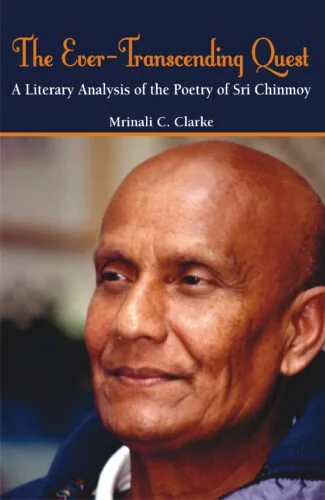
The Ever-Transcending Quest was the only way to explain Sri Chinmoys Beloved Supreme and the continuing evolution of consciousness. It was the interdependence between the Supreme and the human that captivated the author. This book is a tentative exploration.
A quarter century ago I recognized the intensely personal but also revolutionary nature of Sri Chinmoys writings on spirituality. Never before has anyone dared to suggest that the divinity Himself is evolving and transcending. This was a spirituality that soared above the divisions of religion, and potentially rendered religion obsolete! A spirituality eminently suited to our times. His explanations of the different levels of consciousness that jostle for predominance inside each individual; perceptions of the Ultimate Goal of life, and the Higher Consciousness that permeates the universe simply made sense, even seeming to pre-empt the direction of quantum physics.
The broad scope of his work was exhilarating philosophy, literature, music, artworks and the importance of physical fitness to receive the higher light of meditation into the body, departing from the usual portrayal of a Guru and path to enlightenment. It was clear that it would take many decades to understand and absorb his teachings, and by 2007, his oeurve had more than doubled.
The question was how to investigate such vast material. An overview was needed to begin some sort of dialogue with a man who had reached the summits of transcendental heights, and was, in a way, too far beyond our understanding. The Quest theme seemed to fit, and yet even that fell short. Sri Chinmoy always smashed through barriers, and so too an even higher view of the Quest was necessary the Ever-Transcending Quest was the only way to explain his Beloved Supreme and the continuing evolution of consciousness. It was the interdependence between the Supreme and the human that captivated me. This book is a tentative exploration.
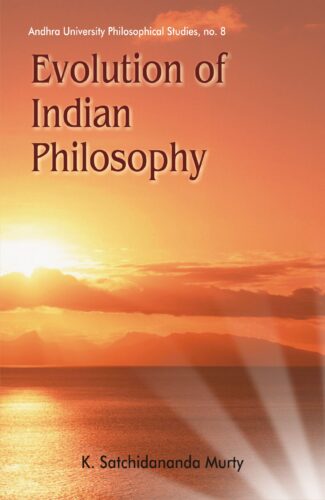
This book focuses on the evolution of philosophy in India with reference to socio-political and economic conditions, through which one can learn that life and thought are invariably interconnected with polity and persons, economy and environment. This book is unique in the sense that it contains a review in the conclusion; and the philosophical heritage has been evaluated in its introduction
In the pattern of Bertrand Russells History of Western Philosophy, this book focuses on the evolution of philosophy in India with reference to socio-political and economic conditions, through which one can learn that life and thought are invariably interconnected with polity and persons, economy and environment. The first chapter demonstrates the socio-political, geographical and racial causes for the formation of human thinking, followed by a chapter on what philosophy is and the nature of Indian philosophy. The Vedas and Upanishads, the Bhagavad-Gita, and about five schools of Vedanta, including Kashmir Shaivism were discussed at length in three different chapters. Another three chapters deal with Carvakas, Jainism and Buddhism; and one on Samkhya and Vaisheshika. This book is unique in the sense that it contains a review in the conclusion; and M.N. Roy has evaluated the philosophical heritage in its introduction. M.N. Roy has remarked that the chapters are of great importance methodologically, and as such constitute the more valuable part of a commendable work of scholarship. It is useful as a reference book for students and scholars as well as general readers interested in understanding the evolution of ancient Indian thought, and broadens the horizons of their knowledge of Indian philosophy.

This book focuses on the evolution of philosophy in India with reference to socio-political and economic conditions, through which one can learn that life and thought are invariably interconnected with polity and persons, economy and environment. This book is unique in the sense that it contains a review in the conclusion; and the philosophical heritage has been evaluated in its introduction
In the pattern of Bertrand Russells History of Western Philosophy, this book focuses on the evolution of philosophy in India with reference to socio-political and economic conditions, through which one can learn that life and thought are invariably interconnected with polity and persons, economy and environment. The first chapter demonstrates the socio-political, geographical and racial causes for the formation of human thinking, followed by a chapter on what philosophy is and the nature of Indian philosophy. The Vedas and Upanishads, the Bhagavad-Gita, and about five schools of Vedanta, including Kashmir Shaivism were discussed at length in three different chapters. Another three chapters deal with Carvakas, Jainism and Buddhism; and one on Samkhya and Vaisheshika. This book is unique in the sense that it contains a review in the conclusion; and M.N. Roy has evaluated the philosophical heritage in its introduction. M.N. Roy has remarked that the chapters are of great importance methodologically, and as such constitute the more valuable part of a commendable work of scholarship. It is useful as a reference book for students and scholars as well as general readers interested in understanding the evolution of ancient Indian thought, and broadens the horizons of their knowledge of Indian philosophy.
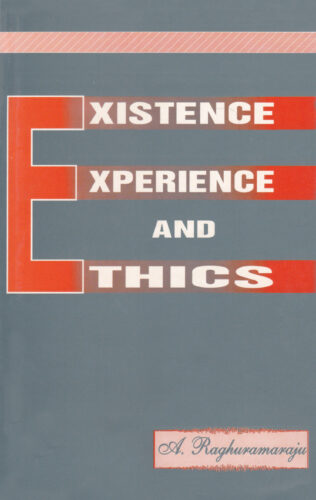
The essays study different dimensions of the modern autonomous individual existence such as the pre-selfconscious self and the minds insane aspects. They discuss artistic, especially aesthetic, experience, and ethics and moral philosophy.
This book, a Festschrift for Professor S.A.Shaida and dealing with matters close to his heart, brings together a wide spectrum of essays written by scholars from philosophy, social sciences, feminism, literature and religion; and engages with some of the most fundamental themes in the domains of existence, experience and ethics. The first section represents different interrogations of the autonomous individual existence postulated by modernity. Each of the essays here attempt to broaden the ground of existence by highlighting aspects of its underside: the mental, the insane aspects of mind, the experience of pre-selfconscious self, the history of autonomous individual before its invention in modern Europe, and such other forms of existence as you and we. The essays in the second section discuss experience, more specifically artistic experience, which constitutes an important facet of human existence. The discussion centres on aspects of the debate between purists and realists in aesthetics, and articulates the need to go beyond these polarities. From an aesthetics that is concerned with the heightened level of experience, the next section deals with issues of ethics and moral philosophy and engages questions of universalism, liberalism, objectivism, fact-value dichotomy, phenomenology of values and so on. The last section traverses the ground of inter-religious interaction and dialogue. The uniqueness of this volume lies in its multidisciplinary space of articulation and would be of considerable interest to teachers and students in the history of philosophy, religion, social sciences, aesthetics and literature. The methodological ground leared by most of the papers could lend a further critical edge to contemporary studies of the modern disciplines.
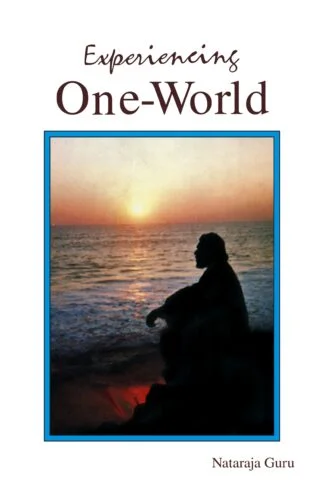
An eminent exponent of Vedantic philosophy here suggests that the one-world dream could become real if Man learnt to cultivate the unitive vision a one-world consciousness that would tune Man to look towards world fraternity.
Is One World a Utopian ideal? Or just a dream in a world which today, more than ever before, stays riven by parochial, deep-rooted barriers : nationalistic, ethnic, religious, linguistic and many other, leave alone a whole diversity of divisive isms? An eminent exponent of Vedantic philosophy here examines this question afresh to suggest that the one-world dream could become a reality, if Man only learnt to cultivate the unitive vision. Essentially a vital part of Nataraja Gurus globally wide educational programme, Experiencing One-World seeks to evolve one-world consciousness that tunes Man to look beyond the trees to stars, to turn on his mind to world fraternity, and to discern the language of audiovisual arts and the charm of poetry as, for instance, is manifest in the world of architecture and music. Spelling out Nataraja Gurus view of One-World that embraces his long-contemplated perspectives on one-world government, one-world economics, world education, one religion, unified sciences and a language of unified sciences, the book highlights the specialties of well-groomed unitive consciousness of a world citizen, who wishes not only to restructure the existing scheme of things, but also to see mankind live a better life and with dignity.
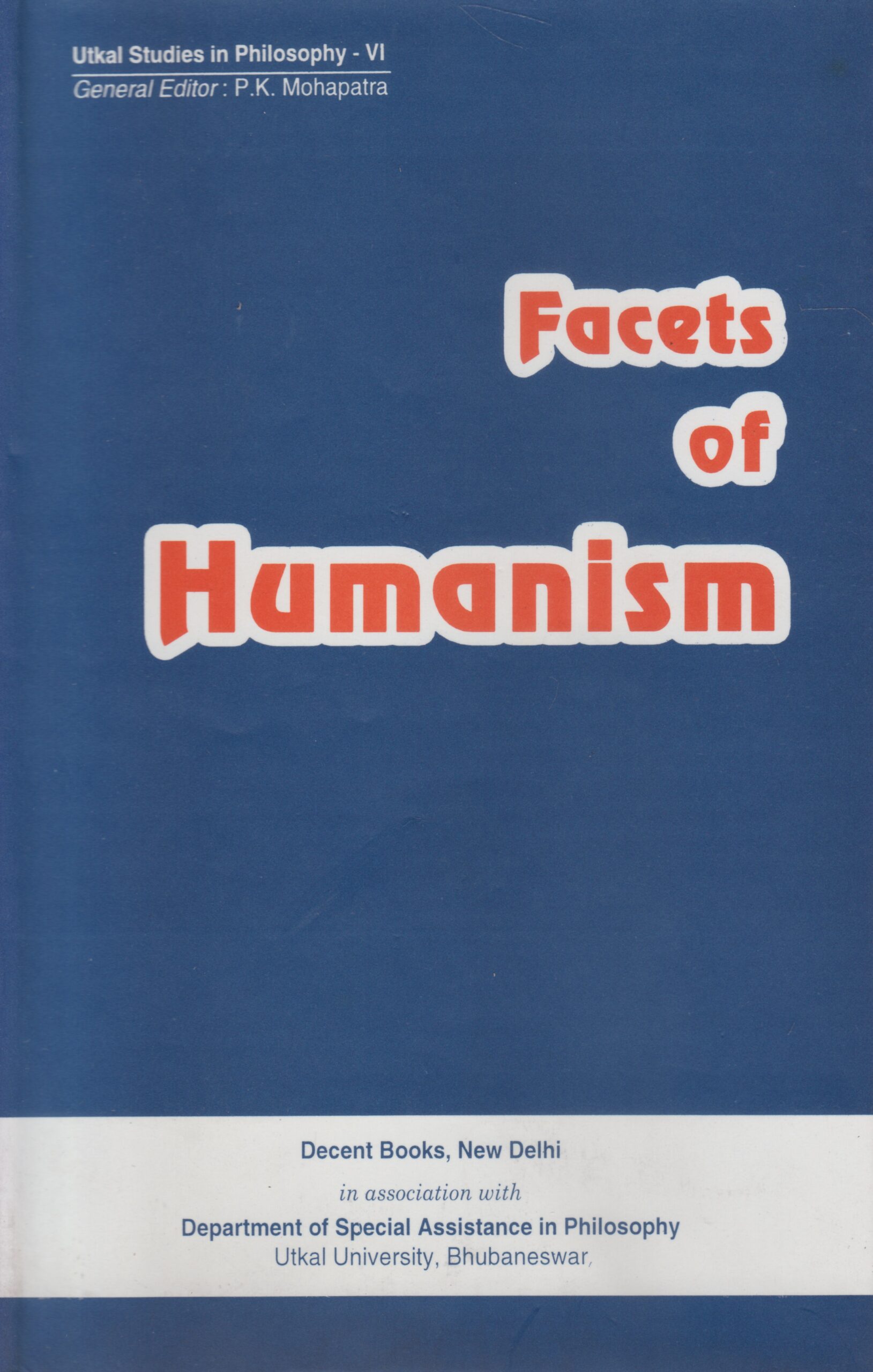
This book focuses on the proper analysis and understanding of humanism and its implications on, and applicability to, the present social scenario. It discusses suitable models of humanism for effective social structuring.
When the humanistic world view had its beginning in Protagorass declaration that man is the measure of things, it was very soon condemned as a subjective, individualistic doctrine without being understood. Yet, since the importance of humanism in the making of a meaningful, value-based society can never be overlooked, humanistic ideals kept trickling in over the years in both Western and Indian philosophical speculations; and it came to be increasingly realised that nothing unhuman can be of interest to man and nothing human can be alien to human thinking. However, humanism now-a-days has become somewhat of a cliche, so much so that almost everybody engaged in some sort of intellectual exercise claims to be a humanist. What is required, therefore, is proper analysis and understanding of humanism and its implications on, and applicability to, the present social scenario. With this objective, this book has focussed on the various aspects of humanism and the authors have attempted to carve out suitable models thereof for effective social structuring and nation building. Readers will benefit by the indepth analyses of the concept in its multifarious dimensions and its application to various aspects of intellectual discourse. Facets of Humanism will be of immense use to students and researchers in philosophy and the social sciences.
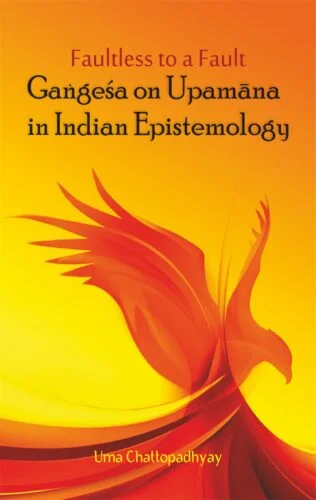
The present volume is a sequel to Dishonoured by Philosophers: Upamana in Indian Epistemology (2009). It is a logical and historical extension of the arguments made in defence of upamana in the previous work, upholding Gangeshas standpoint as the height of perfection, the most vigorous defence of upamana in a series of defences and objections in a long course.
The present volume is a sequel to the authors previous work entitled Dishonoured by Philosophers: Upamana in Indian Epistemology (2009) where she introduced the notion of upamana, its definition, process and also its status in Indian epistemology in general and the Nyaya school in particular. The book ended with an exposition of Udayanacarya, an eleventh-century Nyaya philosopher. But the debate did not end there. Many Indian philosophers took the hard task of reducing upamana to other pramanas, and there were other objections as well.
The sequel volume is a logical and historical extension of the arguments made in defence of upamana in the previous work. An interesting feature of the continuing debate is that a large number of Indian philosophers including the Bauddhas, Jainas, Samkhyas, Vaisheshikas, Mimamsakas, Carvakas and even individual Naiyayikas such as Bhasarvajna were still doubtful of the status of upamana. Over and above all, there was the question of logical economy in a scheme of pramanas. The present work for the first time provides an intensive study of how the Indian philosopher Gangesha Upadhyaya took up the challenge in the twelfth century to give upamana a definite, irreducible place in the scheme of pramanas. Based on Gangeshas monumental work Upamanacintamani along with Pragalbhacaryas celebrated commentary on it, the author reopens the question of upamana in a dialogical method and tries to measure the perfection of Gangeshas arguments. She upholds Gangeshas standpoint as the height of perfection, the most vigorous defence of upamana in a series of defences and objections in a long course, and titles this task of Gangesha Faultless to a Fault in her book.
This is an annotated English translation of Vijñānabhikṣu’s commentaries on the first five Brahmasūtra (BS) of Bādarāyaṇa called the Vijñānāmṛtabhāṣya (VijBh). This is a pioneering work as no translation of the VijBh has been done so far. Bhikṣu is perhaps the only known Vedānta scholar who has argued for Brahman along with his prakṛti-śakti being the cause of the world. He calls his Advaita philosophy as Avibhāga-Advaita and sets himself against Śaṅkara’s Advaita which argues for Brahman alone being the material and efficient cause of the world. Bhikṣu is also an unique Advaita scholar as he interprets Vedānta using Sāṁkhya/Yoga principles. One of the reasons for choosing to comment on only the first five sūtras was because the VijBh is a huge work and also because Bhikṣu’s Avibhāga-Advaita can easily be understood from his commentaries on these first five sūtras of the BS. Even though the real reason for Bhikṣu’s commentary on the fifth sūtra (BS I.1.5) should be clear to anyone familiar with Vedānta’s objection to prakṛti being the cause of the world, it needed to be seen as to how Bhikṣu, as a committed Sāṁkhya-Yoga-Vedāntācārya, defends prakṛti’s role in being the cause. Just as writing commentaries on the first four sūtras of Śaṅkara’s BSBh done by some eminent scholars present the main features of Śaṅkara’s Advaita, the commentaries on the first five sūtras of the BS by Bhikṣu could adequately present Bhikṣu’s Avibhāga-Advaita Vedānta.

This book is an omnibus of eleven thoroughly revised articles on Nirguna Bhakti, published in the 1970s and 1980s. In order to complete the overall view of the author’s research on Nirguna Bhakti, this volume is appended with a summary of nine books published during 1989-2009.
Callewaert started to publish long before the computer age, in 1974. He sent his PhD dissertation to the press typed on paper and then revised three typeset proofs. In 2009, he sent his most recent publication to the publisher on a memory stick: 2,187 pages. Many of the early articles, especially those of the pre-computer age, may no longer be easily available and for that reason eleven articles were selected and thoroughly revised for this publication (pp. 3-169). The research career of Callewaert was at the beginning strongly inspired by F. Camille Bulcke (Ranchi) and Charlotte Vaudeville (Paris). He followed their advice and worked mainly on manuscripts with Nirguna Bhakti literature, preparing critical editions and English translations. In order to complete the overall view of this research in that area, in this book are further given a summary of nine books published in the period 19892009 (pp. 171-216) and a summary of eight articles (19962011, pp. 217-44).
During his career he has photographed many manuscripts now threatened with destruction (the result is now digitized in the University of Heidelberg Library); he has prepared critical editions and translations in collaboration with several outstanding colleagues, and he realized how wrong he was in 1971 when defining his research future: to copy as many manuscripts as possible and to reconstruct the archetype, of the original Kabir and others, after a stemmatic comparison of the manuscripts. For, scribes committed errors, intentionally or unknowingly, and variant readings, Callewaert thought, should enable a researcher to establish the relationship between the manuscripts. What eventually turned out to be a wrong methodology became a very exciting adventure, when Callewaert started to discover the singers in the manuscripts. This evolution too is discussed in the present volume, From Chant to Script.
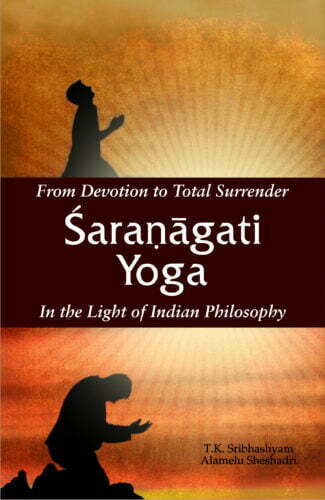
The book is an in-depth study of the origin of bhakti as expounded in ancient scriptures including the Vedas. While the emphasis is on RÀmÀnujas understanding of the Absolute, it explores the bhakti devotion in aivism and throws ample light on mans need for devotion without religious convictions.
The volume is a comprehensive work on bhakti yoga or bhakti marga, seen as the direct path to perfection, the principal means to the progressive perfection of the soul.
The book begins with a detailed study of the origin of bhakti in the Vedas and its understanding in the Brahmanas, Aranyakas, the Upanishads and the Puranas, and other works. It attempts to approach bhakti as a representation of God in the created world and devotion without religious convictions. It throws light on man’s need to develop such devotion through absolute self-surrender to God. The bhakti concept in Vedanta is explored in-depth by referring to Vedanta schools of Adi Shankara, Bhaskara Bhatta, Ramanuja, Caitanya Mahaprabhu, the Alvar Saints of south India and the concept of devotion of Andal. Quoting from the thoughts of diverse bhakti saints of India, it explores the bhakti devotion in Shaivism referring to Shiva as the Supreme God and the concept of Shakti, aspects relating to moral responsibilities, bondage and liberation, and the doctrine of Shatstha. The emphasis is on Ramanujas teachings on bhakti: his understanding of the Absolute, jnana and consciousness, jiva and atma, time and spiritual consciousness. There is a chapter that provides a practical approach to bhakti thought, for instance, ways of developing consciousness of it and non-meditative forms of bhakti.
| × |
|
Horizons of the Self in Hindu Thought 1 x ₹225.00 |
| × |
|
Role of Culture in Development 1 x ₹896.00 |